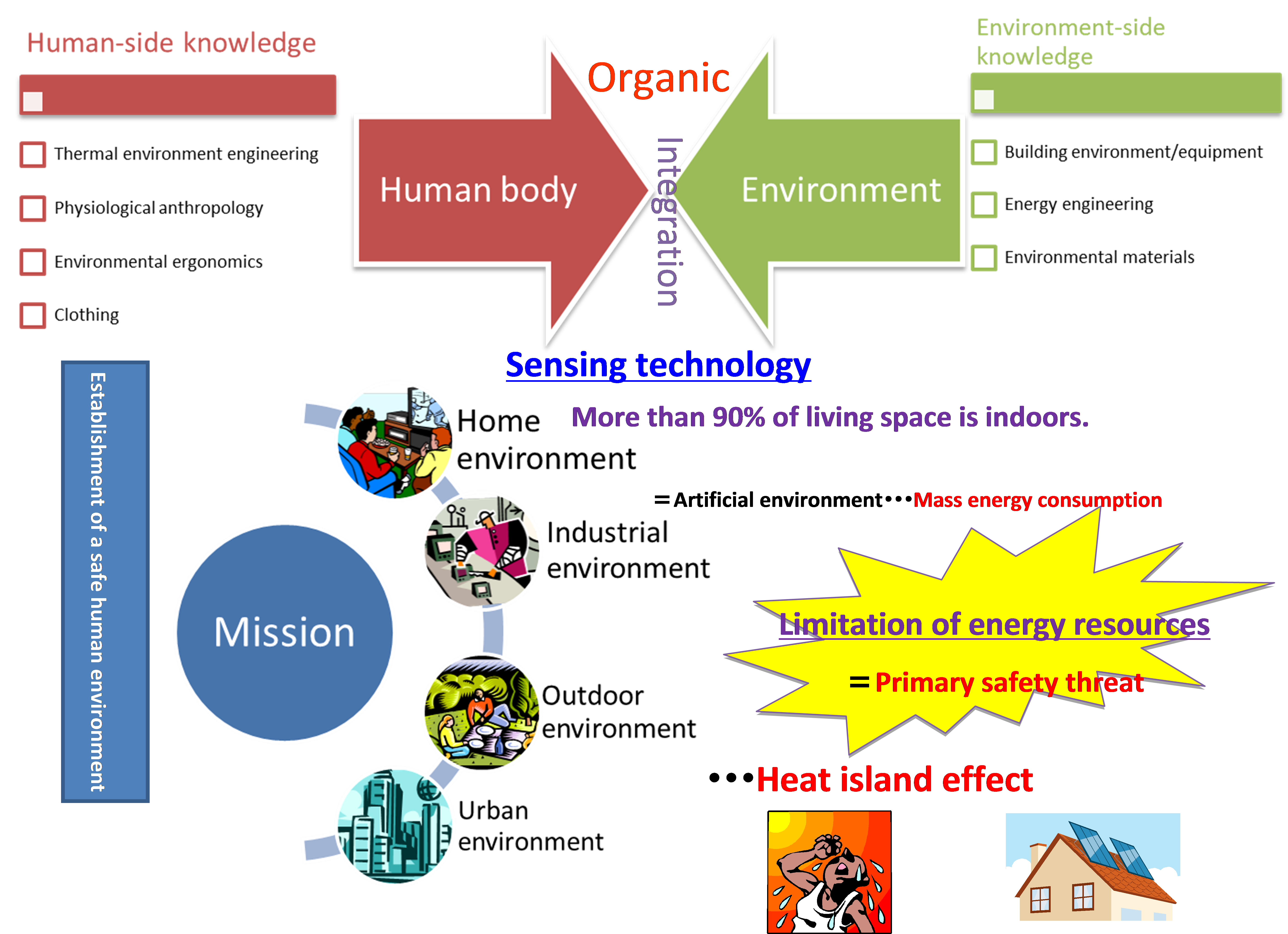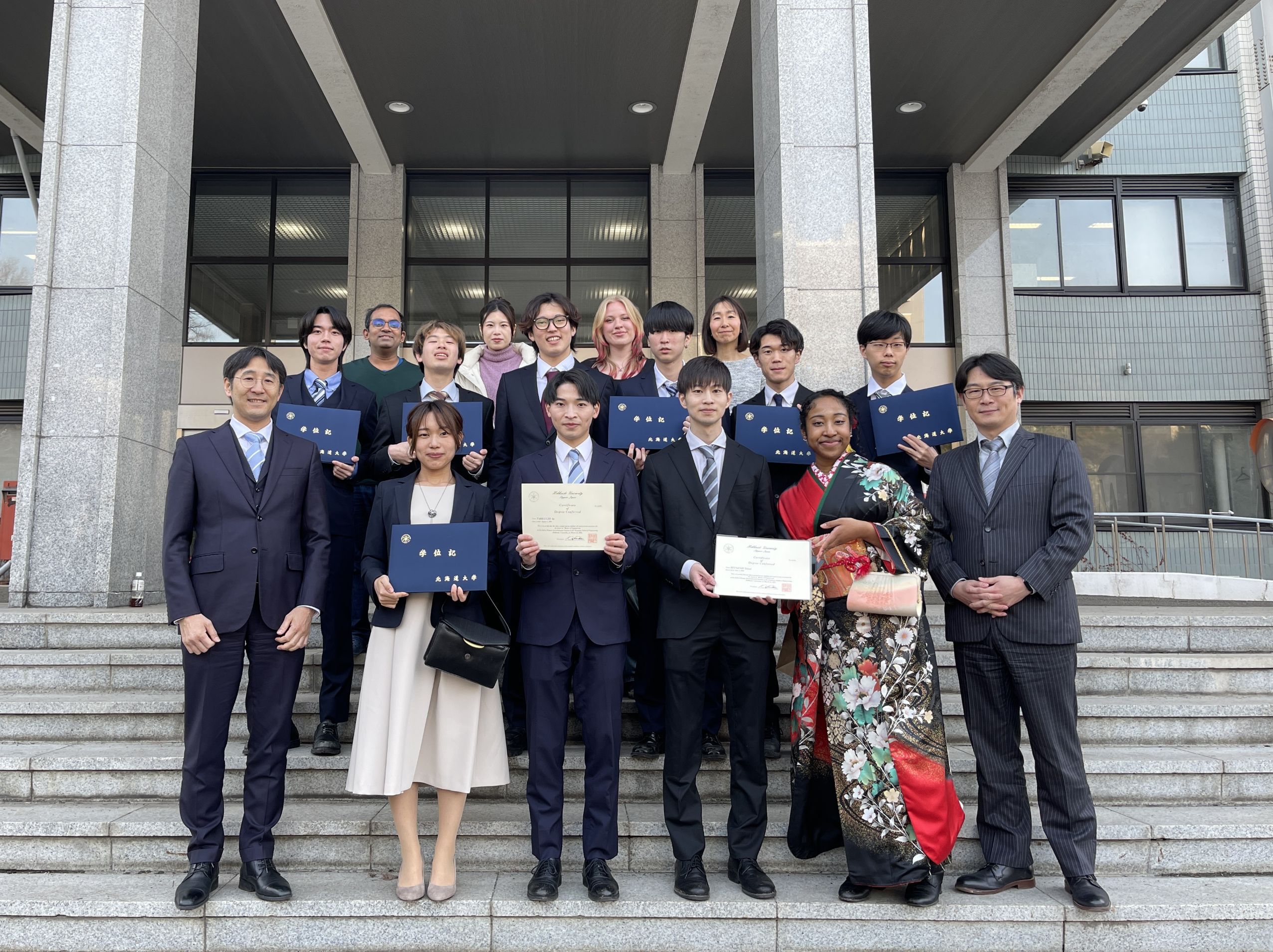Mission in environmental ergonomics (threats to human environmental safety)
The Department of Sanitary Engineering (the predecessor of the Course of Environmental Engineering) was established in response to compelling social demand for the creation and maintenance of a safe human environment as a basis for society’s existence. The mission in environmental ergonomics is to accommodate such demand through the development and design of evaluation methods and control technologies for home, industrial, outdoor and urban environments from a human-focused viewpoint. Today, the primary threat to the human environment is the limitation of energy resources because the safety of today’s world is supported by artificial conditions that depend heavily on energy. Meanwhile, evaluation and control based on new and more sophisticated criteria are required for the maintenance of indoor and outdoor safety and health from the viewpoint of thermal environment engineering. An especially striking effect is seen on a global scale in the dramatic increase in the number of people (e.g., senior citizens, workers, students) taken to hospital by ambulance due to heat stroke caused by the heat island effect. As this serious problem needs to be addressed directly in the context of environmental ergonomics, organized integration of knowledge regarding human and environmental considerations alike is required.
The purpose of the research conducted here is to establish a platform for environmental ergonomics toward the creation of a healthy and safe human environment system. This is expected to support low-burden lifestyles and economic efficiency in the various stages of life incorporating individual differences and age groups, and will also allow the evaluation and control of safety and health based on new and more reliable criteria with special focus on the pressing need for the establishment of a hot-environment risk evaluation method. Based on the creation of opportunities for interdisciplinary research exchanges and the promotion of communication by taking advantage of the university’s comprehensive nature, the status and goals of requirements are examined from a broad perspective and problems are solved by leveraging the characteristics of individual fields. Research projects are related to biological environment evaluation and indoor/outdoor environment control, as well as to ergonomics-based comprehensive human environment systems incorporating both these categories.

Staff
-
Hitoshi WAKABAYASHI, Associate professor, PhD
-
Sang-il LEE, Assistant professor, PhD
Hitoshi WAKABAYASHI, Associate professor, PhD
Academic Background:
2001 Bachelor of Health and Sport Sciences, University of Tsukuba
2004 Master of Health and Sport Sciences, University of Tsukuba
Degrees Awarded:
2007 Ph.D., University of Tsukuba
Research Field:
Environmental Ergonomics, Physiological Anthropology, Cold Adaptation, Thermoregulation, Physical Performance
Academic Society:
The Japan Society of Physiological Anthropology (JSPA)
The Japanese Society of Human-Environment System (HES)
The Japanese Society of Physical Fitness and Sports Medicine (JSPFSM)
The Japan Society of Physical Education, Health and Sports Sciences

Sang-il LEE, Assistant professor, PhD
Academic Background:
2006 Bachelor of Industrial Design, Dong-A University, Korea
2011 Master of Kansei Science, Kyushu University, Japan
Degrees Awarded:
2014 Ph.D., Kyushu University, Japan
Research Field:
Environmental Ergonomics, Physiological Anthropology, Chronobiology (Human Circadian Rhythm), Non-image-forming responses
Academic Society:
The Japan Society of Physiological Anthropology (JSPA)
Japanese Society for Chronobiology (JSC)
The Japanese Society of Sleep Research (JSSR)

